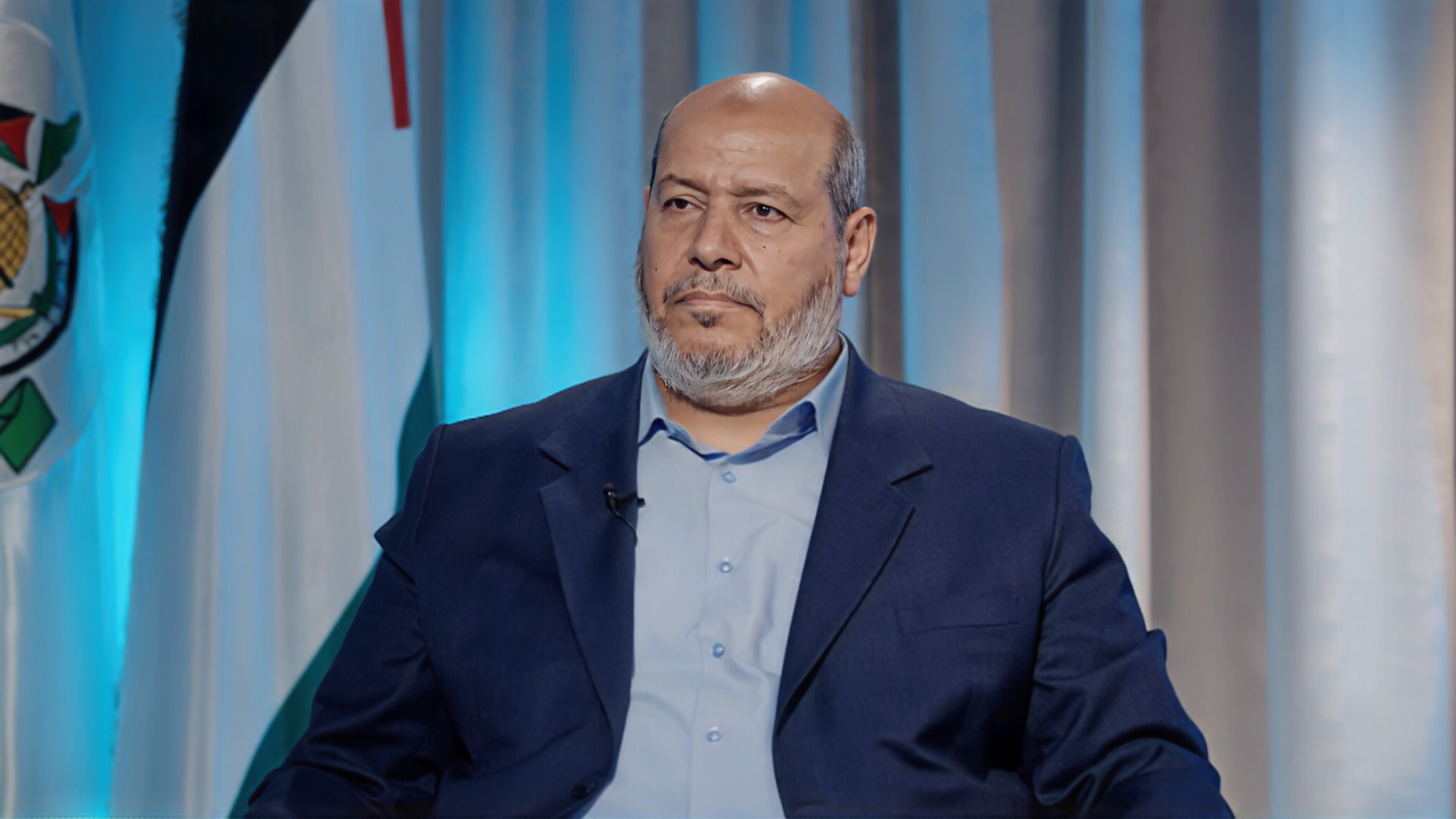Khalil al-Hayya, a member of the political bureau of the Islamic Resistance Movement (Hamas), does not rule out – in the first part of an exclusive interview of the "interview" program – that the Gaza Strip will be directly involved in a possible confrontation with the Israeli occupation. He describes the current phase as the revival of the Palestinian cause.
According to al-Hayya, the conditions are largely ripe for a possible confrontation between Palestinians and Israelis, given the behavior of the occupation and what it described as extremists, settlers and terrorists in the government of Benjamin Netanyahu, which came up with a clear program calling for the expulsion and displacement of Palestinians.
He believes that the Palestinians agree to confront the occupation government on the ground with all forms of resistance, and politically by isolating it before the international system in all international forums, stressing that Hamas and the rest of the Palestinian factions have a force capable of curbing aggression and strengthening the equations between the resistance and the occupation, and more surprises may occur than it did in the battle of the "Sword of Jerusalem", referring to the battle in which the Palestinian resistance in May 2021 directed rocket strikes deep inside Israel following settler incursions into the mosque. Al-Aqsa and Israeli plans to transfer residents of the Sheikh Jarrah neighborhood in Jerusalem.
Al-Hayya, who is the head of Hamas' Arab and Islamic Relations Office, pointed out that the equations of deterrence with the occupation are based on the presence of a force inside Gaza capable of striking the occupation everywhere, and on a resistance inside the West Bank that does the same, a resistance that believes in joint action and national unity, and is in harmony on the ground.
Regarding Hamas' readiness for any possible confrontation with the occupation, the guest of the episode (2023/3/19) of the "Al-Maqaba" program revealed that the movement is not immune from the field, and is engaged on a daily basis with the resistance in Nablus, Jenin and Qalqilya, and has a force ready to engage directly in any confrontation with the occupation when the decision is made to do so.
In the same context, the Hamas official stressed that what is happening in the West Bank confirms that the resistance is what deters the occupation and achieves achievements, as it did in the Al-Aqsa Intifada, pointing out that the resistance is escalating in multiple forms, through the organized work of the Palestinian factions (Hamas, Islamic Jihad, the Popular Movement and others), and the joint work of the united resistance represented in the "Black Den", which constitutes a common societal phenomenon, and also in the "Jenin Brigade", which began to be repeated in Hebron, Tulkarm and Qalqilya, in addition to the single case, as every Palestinian citizen has A knife, a gunpowder or a stone resists the occupation, which has left the Palestinians no choice but to confront it, as Al-Haya asserts.
Regarding Hamas' acceptance in 2017 of the establishment of a Palestinian state on the borders of June 1967, Al-Haya stressed that the decision was part of an interim national consensus, and the movement confirmed at the time that it would not recognize Israel, pointing out that all data indicate today that the two-state solution no longer exists and that the Palestinians are facing a new battle.
Reasons for the Restoration of the Relationship between Hamas and the Assad Regime
On the other hand, a member of Hamas' political bureau explained to the interview program the reasons for the restoration of relations between Hamas and the Syrian regime, saying, "No one asked us to restore relations with Syria," and "there is no request or mediation from Iran," attributing the motivation to the political reading of what is happening in the region and the need for Hamas to strengthen its relations with pivotal and important countries that are still ready to support the Palestinian resistance.
He pointed out that Hamas and the Syrian regime agreed to restore and develop the relationship gradually, and that the Syrian regime "welcomes the presence of a Hamas office in Damascus and a Hamas representative in Syria," stressing that Hamas has a clear policy and does not interfere in the affairs of other countries, and its relationship with Syria is linked to Palestinian affairs and only discusses the Palestinian issue.
Hamas was an ally of Damascus before relations gradually soured in 2011 following the outbreak of the Syrian revolution, which turned into an armed conflict. In February 2012, al-Shabaab announced that its leaders had left Damascus, closed all offices, and suspended activities there.
Regarding Hamas' relations with other Arab and Islamic countries, al-Haya describes the relationship with Egypt as good, saying that Saudi Arabia means them as a state from its position and status, but has taken a trend to distance itself from them, denying that the reason is the relationship between Hamas and Iran. It also commends Qatar's role in its continued support for the Palestinians and the Gaza Strip in particular.
As for the relationship between Hamas and Iran, he stressed that "Iran stands with everything it can with the resistance as a program and supports it politically, with money and weapons, and pays prices for that," acknowledging the decline in the political relationship between them in 2013 after the movement's exit from Syria, but Iranian military and financial support has not stopped.
Turkey does not provide any military support to the Palestinian resistance and only provides humanitarian support through some charitable institutions, the Hamas official revealed to the interview program.

